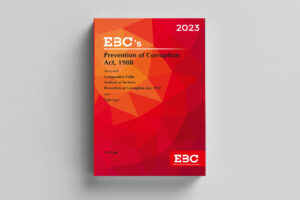Supreme Court: In a batch of civil appeals by the Central Bureau of Investigation against Andhra Pradesh High Court’s decision, the Division Bench of Pankaj Mithal and SVN Bhatti delineated the contours of a magistrate’s discretion under Section 239 of the CrPC, and set aside concurrent findings of discharge by the Special Court and High Court, reiterated that reliance on material produced by the accused at the stage of discharge is impermissible in law.
The Court emphasised that the threshold under Section 239 must be assessed solely on the basis of the police report and accompanying documents filed under Section 173 CrPC.
Background
The CBI registered FIR A-1, a Cotton Purchase Officer in the Cotton Corporation of India (CCI), Guntur, and others under Sections 120B read with 420 IPC and Sections 13(2) read with 13(1)(d) of the Prevention of Corruption Act, 1988. It was alleged that during the MSP procurement operations in 2004—05, A-1 and his son A-3 purchased cotton from farmers at below-MSP prices, hoarded the produce, and later sold it to CCI under fictitious farmer names (A-4 to A-47), thereby siphoning off MSP benefits amounting to ₹21.19 crores.
The prosecution highlighted the use of benami bank accounts introduced by A-3, forged documents by A-2 (a supervisor in the Agricultural Market Committee), and mismatches in land ownership and produce quantities, which revealed a pre-planned conspiracy. A chargesheet was filed in 2009, and cognizance was taken in 2011.
Eleven accused sought discharge under Section 239 of the Code of Criminal Procedure, 1973 (‘CrPC’) before the Special Court, relying on a 2007 letter from the CCI which stated that no financial loss was caused to CCI, and all MSP purchases adhered to the prescribed guidelines. The Special Court and subsequently the High Court allowed discharge, accepting the defence’s reliance on this letter.
Analysis and Decision
The Court perused the Section 239 of the CrPC, judicial precedent, and the evidentiary material forming part of the chargesheet. The Court analysed the key question as to whether the Special Court and the High Court were justified in allowing the discharge of the accused by relying on material summoned at the instance of the defence, specifically the letter issued by the CCI exonerating A-1 and his associates.
Section 239 of the CrPC mandates that a Magistrate may discharge the accused if “the charge against the accused is groundless,” but crucially, only based on the police report and documents filed under Section 173 CrPC, not on materials brought forth by the defence. The Court reiterated the settled position that discharge is not a mini-trial.
In this reference, the Court relied on State of Orissa v. Debendranath Padhi, (2005) 1 SCC 568, wherein, it was emphasised that, “The expression ‘hearing the submissions of the accused’ cannot mean opportunity to file material to be granted to the accused and thereby changing the settled law. […] The accused would be entitled to produce materials and documents in proof of such a plea at the stage of framing of the charge, in case we accept the contention put forth on behalf of the accused. That has never been the intention of the law well settled for over one hundred years now.”
The Court firmly rejected the practice adopted by the trial court, which had summoned the CBI—CCI correspondence (dated 08.01.2007 and 31.01.2007) on the defence’s motion and then used it as a basis to discharge the accused. This amounted to usurping the jurisdiction reserved for trial, thereby subverting the statutory structure of the CrPC.
The Court noted that the Special Court had given near-conclusive weight to the CCI’s 2007 reply stating no procedural irregularity or financial loss occurred, and that A-1’s actions were within MSP guidelines.
The Court added that in the matter at hand, the discharge has been ordered not by referring to any of the situations referred in Section 239 of the CrPC, but by relying on the documents made available by the accused. The procedure followed by the Special Court and as confirmed by the High Court was patently illegal, and contrary to the binding precedent. The passing remark by the High Court in the common order that there is no material for cheating and forgery belies the existence of allegations and documents. The consideration of material, i.e., chargesheet and list of documents, in the background of allegations made against the accused is the available path for discharge by the special court and the High Court. But a path unavailable to the special court and the High Court is the consideration of material invited at the instance of the defence for ordering discharge.
Crucially, this exculpatory letter was not part of the prosecution record under Section 173 CrPC, and its consideration at the discharge stage violated the clear bar articulated in Padhi (supra).
The Court cautioned against Trial Courts prematurely usurping the role of a trial by making conclusive determinations at the discharge stage based on incomplete or inadmissible material.
The Court concluded that both the Special Court and the High Court had committed jurisdictional errors by entertaining extraneous material and failing to apply the correct test under Section 239 CrPC.
“Non-compliance with the discretionary limits as set out under section 239 of the CrPC warrants the interference of this Court”, the Court stated. Accordingly, the Court set aside the discharge orders, dismissed the discharge petitions of the accused, and remitted the matter back to the Special Court to consider afresh the issue of framing charges, strictly based on the prosecution material.
[State v. Eluri Srinivasa Chakravarthi, 2025 SCC OnLine SC 1215, Decided on: 22-05-2025]
Advocates who appeared in this case:
For the petitioner: Mrs. Rukhmini Bobde, Adv., Mr. Anuj Srinivas Udupa, Adv., Ms. Vanshaja Shukla, Adv., Mr. Ashok Panigrahi, Adv., Ms. Seema Patnaha, Adv.
For the respondent: Mr. Shoeb Alam, Sr. Adv., Mr. Rajat Singh, AOR, Mr. Sarthak Chandra, Adv., Mr. Dev Sareen, Adv. M/S. M. Rambabu And Co., AOR, Mr. KV Girish Chowdary, Adv., Mr. D Satya Sumanth, Adv., Ms. Tatini Basu, AOR





